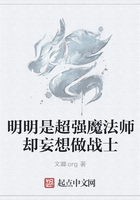"The sultan (Ibrahim)after this victory growing haughty and imperious,treated the ambassadors of Nizam Shah in a contemptuous manner,and behaved tyrannically to his own subjects,putting to death many and severely punishing others of his principal nobility for slight offences,which occasioned disaffection to his government."On Burhan again invading Bijapur territories,a party was formed to depose Ibrahim and raise to the throne his brother Abdullah.This prince,finding that the conspiracy had been discovered,fled for safety to Goa,where he was well received.But when Ibrahim promised certain provinces to the Portuguese if they would send Abdullah away to a place where he could no longer disturb the peace of the Bijapur territories,De Sousa accepted the conditions;receiving the gift of Salsette and Bardes for the crown of Portugal,and the whole of the vast treasures accumulated by Asada Khan at Belgaum as a personal present for himself.Having pocketed as much as he could of the bribe,however,he only took Abdullah as far as Cannanore and then brought him back to Goa;and when,at the end of the next year,De Castro succeeded De Sousa as Governor,the former refused to surrender the rebel prince.This duplicity placed the Sultan in great difficulty,and in February 1546he executed a treaty of peace,one of the terms of which was that no person belonging either to the Dakhan,or to the territories of the Nizam Shah,or to those of the king of Vijayanagar,with certain others specially mentioned,should be permitted to have any communication with Abdullah or his family until the reply of the king of Portugal was received to an embassy which the Adil Shah proposed to send to him.There were other terms also,and these not being acted up to by the Portuguese,the Sultan in 1547sent some troops into the provinces of Salsette and Bardes,which were driven out by the Viceroy after a stubborn fight.
De Castro then concluded treaties with Vijayanagar on the 19th September 1547,and with Ahmadnagar on the 6th October of the same year,by the former of which the Hindu king was secured in the monopoly of the Goa horse trade,[307]and by the latter a defensive alliance was cemented between the Portuguese and the Nizam Shah.This constituted a tripartite league against Bijapur.
Shortly afterwards a still more determined attack was made by the Bijapur troops against the mainlands of Goa,and in the battle which ensued one of the Adil Shah's principal generals was slain.
In 1548the Viceroy concluded a more favourable arrangement with Bijapur and also with the Rani of Bhatkal.
The Portuguese historians say that De Sousa and Asada Khan both joined the ranks of the supporters of Abdullah,and that Asada Khan promised to give the king of Portugal all the territories of the Konkan on the downfall of Ibrahim,but the Viceroy changed his mind and withdrew,while Asada Khans death put a stop to all intrigues in that quarter.
Firishtah's account,however,of the conduct of Asada at this period totally differs,as do his dates.He states that,although the Khan was much distressed at his master's neglect,his coldness towards him,and his attitude of suspicion,yet he himself was consistently loyal in his actions,and did his utmost to crush the conspiracy.As to the Portuguese,this historian avers that,so far from abjuring the cause of Abdullah,they actually marched with that prince from Goa towards Bijapur,supported by the Nizam Shah,and even reached the neighbourhood of Belgaum;but when it became evident that Asada could not be corrupted,the nobles of Bijapur returned to their allegiance to their sovereign,and the alliance broke up.Sultan Ibrahim advanced to Belgaum in February 1549,[308]but on the road heard that Asada had died.
Firishtah's account of the Bijapur Sultan's conduct when he arrived at Belgaum is too suggestive to be omitted.The king,he says,"COMFORTEDHIS (ASADA KHAN'S)MOURNING FAMILY WITH KHELAUTS AND ASSURANCES OFROYAL FAVOUR,BUT ALL HIS ESTATES AND TREASURES HE TOOK FOR HIS OWNUSE"--though these treasures were the accumulated property of a man whom the historian declares to have been,during the whole of his long life,the most faithful,courageous,and devoted adherent of his royal master,whom on many occasions he had personally rescued from difficulties which appeared almost insurmountable!The Portuguese account as to the fate of the treasures accumulated by Asada Khan is given by Mr.Danvers,who,treating the Khan as an unprincipled rebel,writes:--"In addition to ****** over Salsette and Bardes to the Crown of Portugal,the Adil Khan had also given Martim Affonso (De Sousa,the viceroy)the vast treasure which Acede Khan had collected for the purpose of carrying out his rebellion,and which is said to have amounted to ten millions of ducats,OF WHICH,HOWEVER,ONLY ONE MILLIONCAME INTO THE HANDS OF MARTIM AFFONSO.Some accounts state that he sent about half of this amount to Portugal for his own use,but others aver that he employed a great part of it in the public service in India,besides sending some home for the king's use in Portugal."[309]
It will be seen that the two accounts differ widely in details.
At this time Ibrahim Qutb Shah,younger brother of Jamshid and heir presumptive to the throne of Golkonda,was at Vijayanagar,whither he had fled in fear of Jamshid's despotic and violent temper.Firishtah[310]relates a story of him which is worth repeating here,partly because the event occurred in the Hindu capital,partly because it illustrates the practice of duelling which,as Nuniz tells us,largely obtained at that time.[311]and partly because it confirms the assertions of Nuniz that the king of Vijayanagar was in the habit of disposing at will with the revenues of his provinces.
Rama Raya had despotically turned out of his estate an Abyssinian officer in his employ named Ambur Khan,and conferred the same on Prince Ibrahim for his support.















